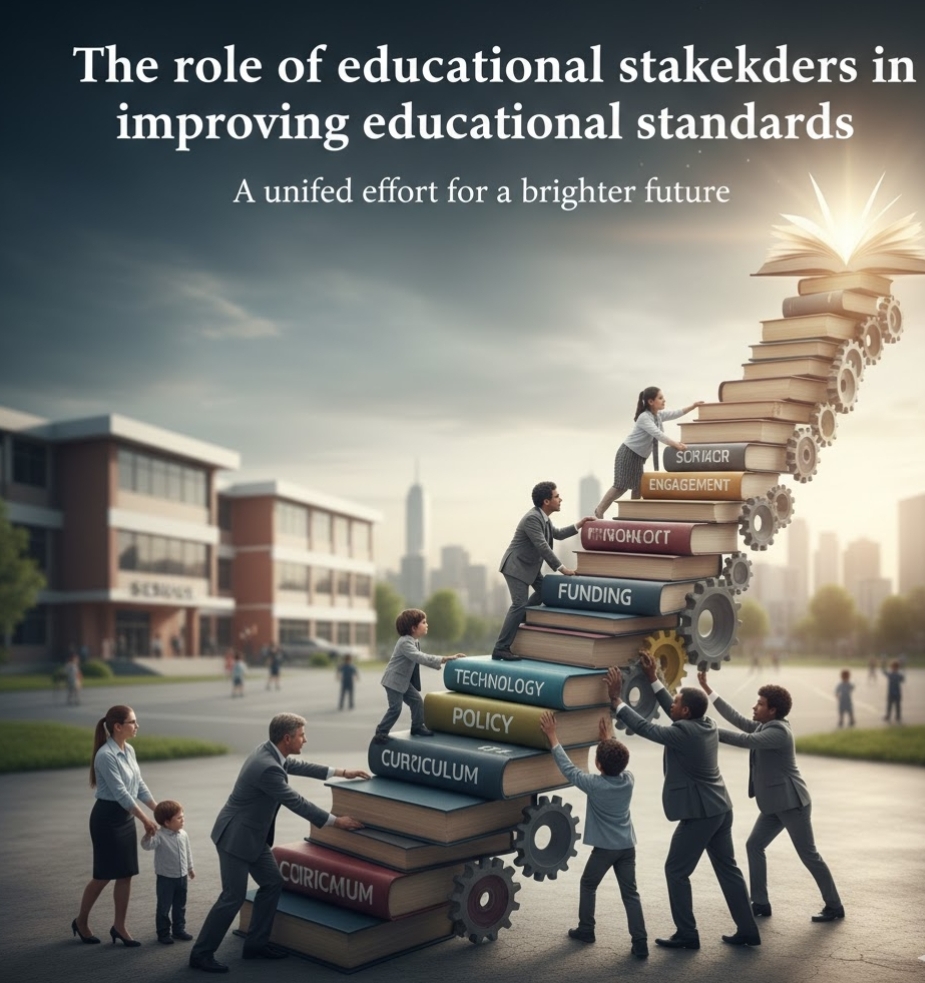A unified effort for a brighter future: what roles should Educational Stakeholders play to improve our Educational Standards?
By: Joseph M. Conteh

Education remains the cornerstone of national progress and a key ingredient for sustainable development. No nation can rise above the quality of its education system, and achieving high standards requires the joint effort of everyone involved teachers, students, parents, school administrators, government, non-governmental organizations, and the wider community.
Teachers as the Foundation of Quality Education
Teachers are often described as the backbone of education and rightly so. Their dedication, knowledge, and teaching methods directly shape the future of students. By embracing modern teaching strategies, using technology effectively, and continually developing their professional skills, teachers can inspire creativity, critical thinking, and discipline among learners. A good teacher is not only an instructor but also a mentor and a role model.
Students as Active Participants
Education works best when students take ownership of their learning. Beyond attending classes, they must be motivated, disciplined, and curious. Students who participate actively in both academic and extracurricular activities tend to develop broader skills that prepare them for success. A positive attitude toward learning is the foundation of academic excellence.
Parents and Guardians: Partners in Learning
Parents play a crucial role in improving educational standards. Their involvement through attending school meetings, helping with homework, and providing emotional and moral support reinforces what children learn in school. When parents and teachers work hand in hand, students are more likely to perform better and remain motivated to learn.
School Leaders and Administrators
Strong leadership is essential for maintaining high educational standards. School heads must ensure that teachers are supported, facilities are well-managed, and the learning environment is conducive. By encouraging professional development and enforcing discipline, administrators help create schools where both teachers and students can excel.
The Role of Government and Policymakers
The government remains a major player in ensuring education quality. Through effective policies, regular curriculum updates, and adequate funding, the state can promote fairness and accessibility in education. Training teachers, building schools, and providing resources are crucial steps toward raising the bar in the education sector.
NGOs and Community Support
Communities and non-governmental organizations also contribute significantly to improving education. From providing scholarships and feeding programs to building classrooms and libraries, their efforts help bridge gaps that government alone cannot fill. When communities take pride in supporting local schools, education becomes a shared responsibility.
A Shared Commitment
Conclusively, improving education is not the job of one group alone — it is a collective responsibility. Teachers must teach with passion, students must learn with purpose, parents must stay involved, and leaders must govern with integrity. When all stakeholders play their parts effectively, the result is an education system that produces knowledgeable, responsible, and skilled citizens who can drive national development.
Meet the writer 👇

Comments
Post a Comment